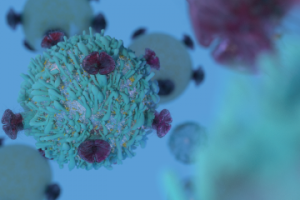
Aha-Soft; CI Photos / shutterstock.com
Connect with colleagues at the Basic Research Conference (BRC) and the Clinical Research Conference (CRC) pre-meeting courses at the 2017 ACR/ARHP Annual Meeting! The ACR has an exceptional array of research leaders lined up for this year’s BRC and CRC courses on Friday, Nov. 3, and Saturday, Nov. 4, in San Diego. Get ready to take advantage of these pre-meeting courses, which are designed to foster the exchange of ideas and dialogue with colleagues in an intimate environment before the full conference kicks off.
BRC: The Interface of Innate & Adaptive Immunity in Rheumatic Diseases
It’s becoming increasingly clear that the aberrant expression of endogenous danger signals provides the trigger for a variety of rheumatological disorders. This conference will focus on understanding how endogenous ligands can activate innate immune receptors to trigger the onset of systemic autoimmune diseases and the subsequent activation of autoreactive B cells and T cells.
Experts in the field will address the nature of both nucleic acid and stress-induced ligands and provide a clear description of the relevant receptors and how engagement of these pathways can provoke the adaptive immune system. Topics will also include natural pathways that limit the activation of these receptors and novel strategies for targeting these receptors therapeutically. The speakers are internationally recognized investigators in the field of innate immunity and their expertise bridges basic and translational research.
“This promises to be a very exciting, stimulating and dynamic program at the cutting edge of an emerging field highly relevant to our understanding of the pathogenesis of systemic autoimmune diseases,” says 2017 Basic Research Conference co-chair Ann Marshak-Rothstein, PhD, University of Massachusetts Medical School.
CRC: Precision Medicine in Rheumatic Diseases: Hopes & Challenges
Precision medicine is an emerging approach for disease treatment and prevention that takes into account individual variability in physiology, genetics, environment and lifestyle. This course will review methods to approach precision medicine in rheumatology and related fields. We will highlight challenges and provide a platform for discussion of future research endeavors that might inform this approach to rheumatic diseases.
Experts in the field will share technologies currently being brought to bear on precision medicine in diverse areas throughout medicine, including rheumatic diseases, pharmacology, cancer and familial genetic diseases. At the completion of the course, participants will have a better appreciation for the role of analyzing large datasets and establishing large collaborative networks to further the goals of precision medicine in rheumatology.
“We feel very fortunate to have speakers who are leaders in high-dimensional data analysis and clinical medicine from a wide range of disciplines together in San Diego to help us tackle the challenges of precision medicine,” says 2017 Clinical Research Conference co-chair Soumya Raychaudhuri, MD, PhD, Harvard Medical School.
In addition, participants will have a better understanding of the complexities and challenges in identifying the optimal drug for individual patients with rheumatic disease.
“The focus of this year’s CRC is timely, not just for rheumatology but for healthcare and research generally. Several characteristics of rheumatic diseases, particularly their heterogeneity, make them ideal candidates for a precision medicine approach to diagnosis and treatment. We hope ACR attendees will take advantage of this unique opportunity to hear from leaders in the field about opportunities for applying a precision medicine approach to rheumatic disease care and research,” says 2017 Clinical Research Conference co-chair Lindsey Criswell, MD, MPH, University of California-San Francisco.
Space is limited, and a separate registration is required, register now.

